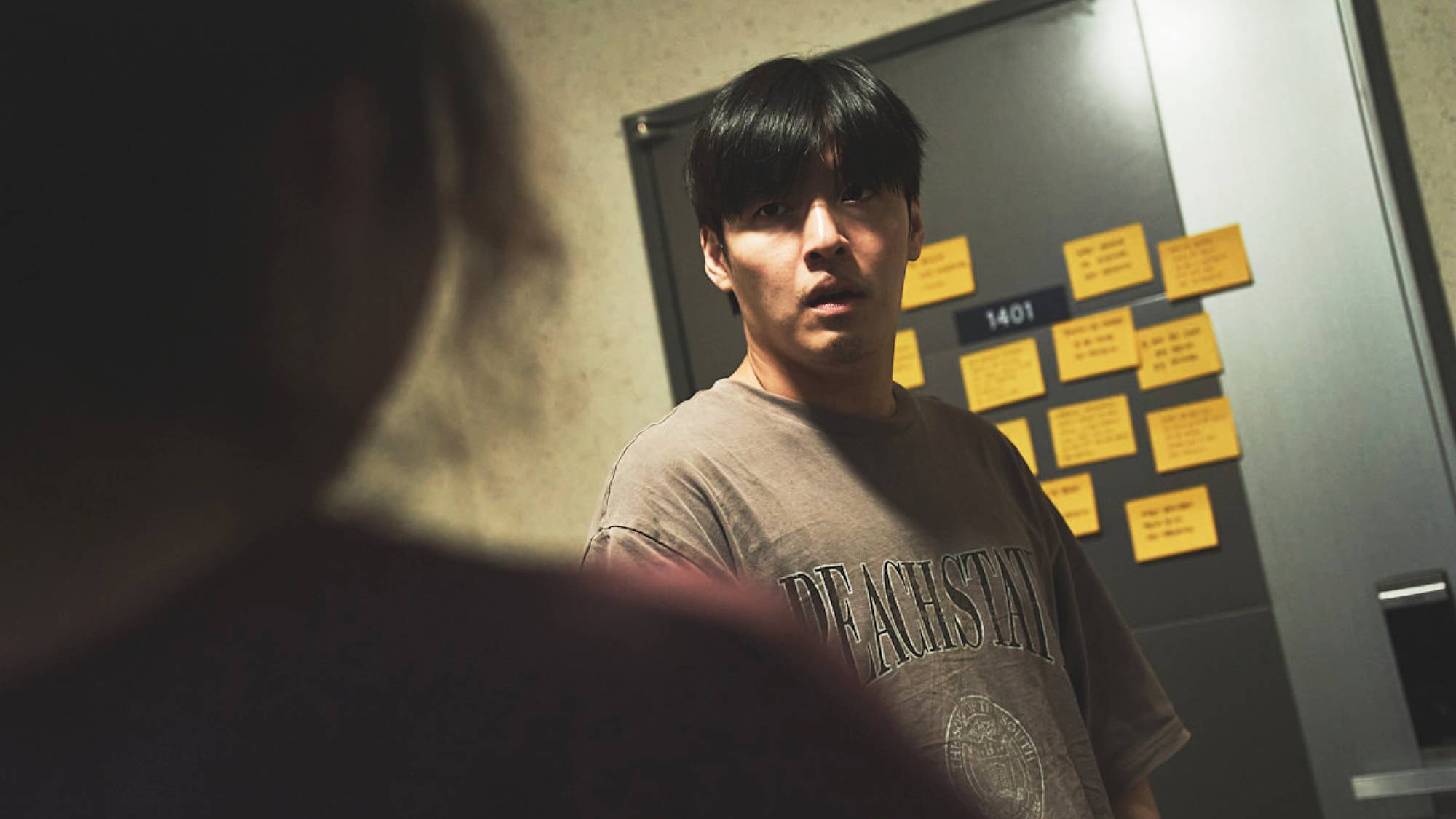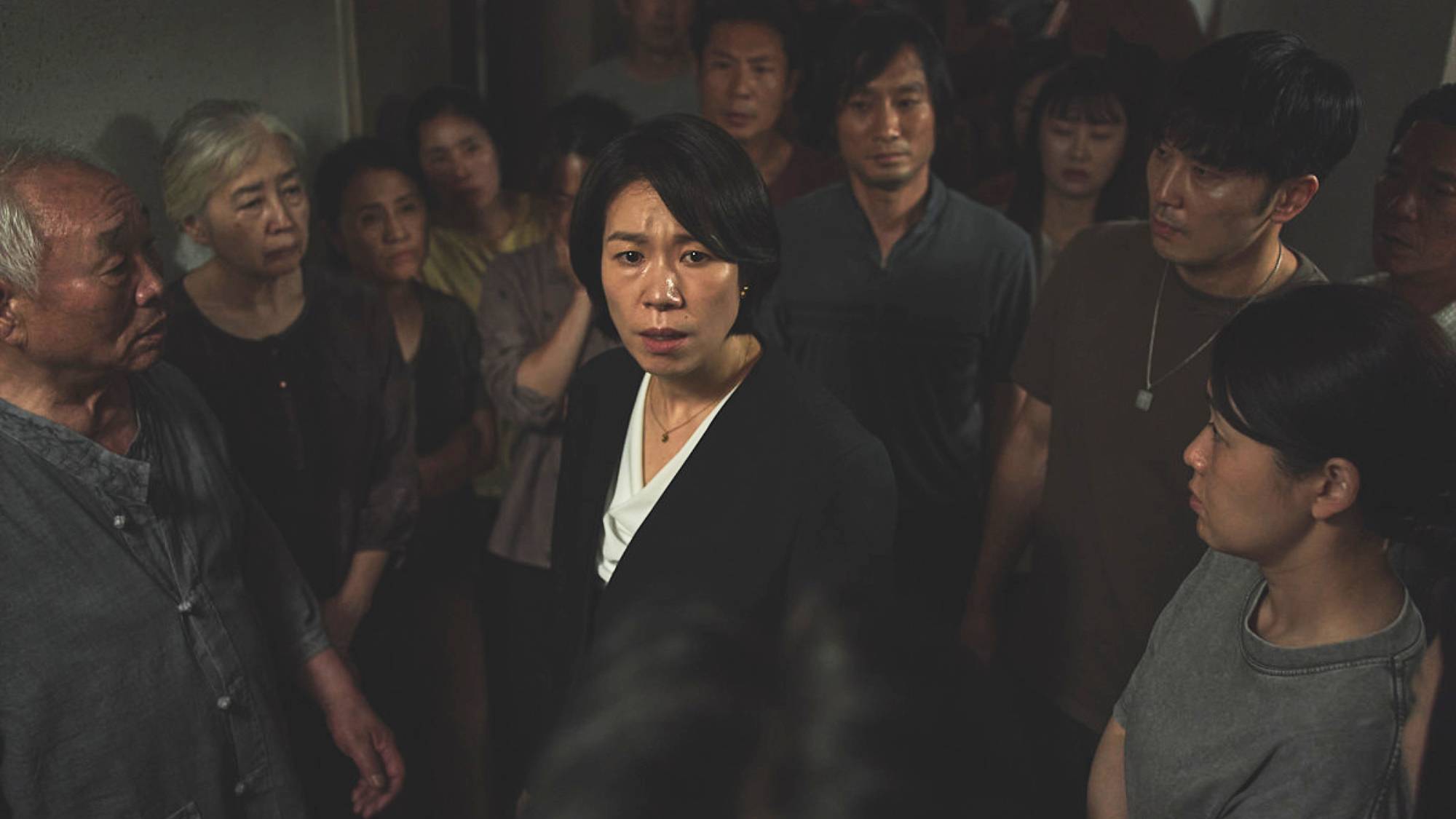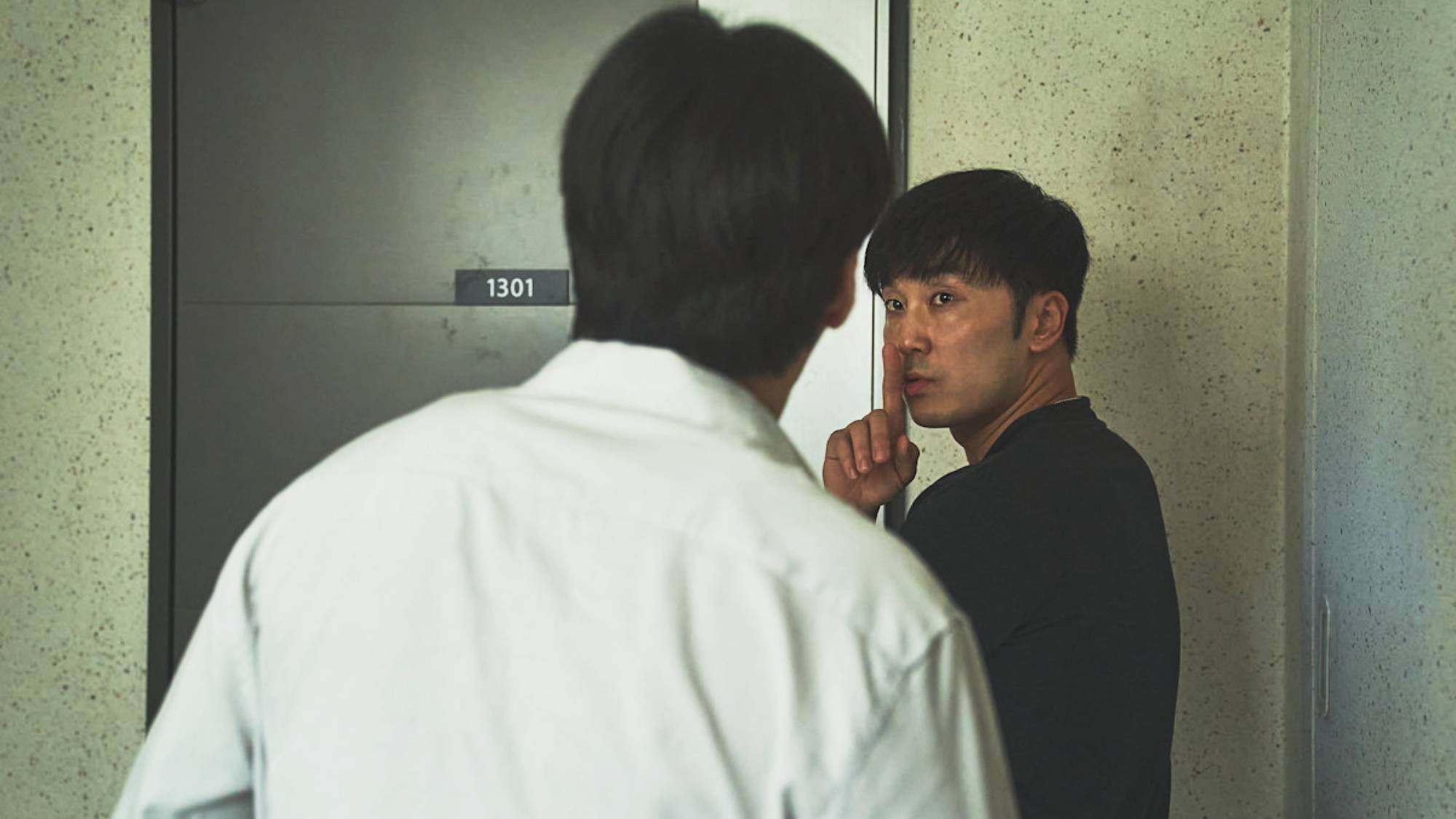How much you’ll get out of Netflix’s new Korean thriller “Wall to Wall” depends on your tolerance for slow-burning tension in the most mundane of settings.
The movie follows an office worker who finally buys his dream apartment, only to discover that the real nightmare isn’t outside but within the building itself. Strange, persistent noises from neighbors above and below begin to chip away at his sanity. If the idea of neighborly torment and creeping psychological dread in close quarters sounds like your kind of thriller, “Wall to Wall” might just hook you in.
It’s actually refreshing to watch a thriller that doesn’t rely on the supernatural. Instead, it leans into the claustrophobia of urban living. Thin walls, cramped spaces, and suffocating silence all become weapons in a slow-burning psychological war.
The movie’s real strength lies in turning all-too-familiar frustrations, like noisy neighbors, financial strain, and apartment life stress, into a gripping exploration of mental unraveling and social isolation.
Now that “Wall to Wall” is streaming on Netflix, here’s everything to know about this slow-burn thriller and why it stands out in the increasingly crowded world of psychological suspense.
What is ‘Wall to Wall’ about?
Watch On
“Wall to Wall” follows Woo-sung (Kang Ha-neul), a diligent office worker who finally achieves his dream of buying a modest apartment in a bustling South Korean city.
To afford it, he drains his savings, takes on loans, and even sells his family’s garlic farm. But the joy of homeownership quickly fades as Woo-sung becomes tormented by mysterious, incessant noises from his neighbors above and below.
Desperate to find peace, Woo-sung allies with his upstairs neighbor Jin-ho (Seo Hyun-woo), while the building’s apartment representative, Eun-hwa (Yeom Hye-ran), tries to keep the fragile community calm.
As the noise worsens, the relationships between neighbors unravel, revealing hidden fears and suspicions.
‘Wall to Wall’ is more than just the annoyance of noisy neighbors

You wouldn’t be wrong in assuming that “Wall to Wall” is all about the experience of living with disrespectful neighbors, based on the premise alone. Even though the central idea is about a man being tormented by loud noises every night, this thriller aims to shed light on real-world issues in South Korea, particularly around housing and mental health.
At its core is the claustrophobia of cramped apartment living, a reality for much of the country’s population, where 84-square-meter units are the norm and housing costs continue to soar. Hence why the movie is actually called “84 Square Meters” in its native country.
Woo-sung is desperate enough to use all of his savings, and even sell his mother’s farm to get an apartment. “Wall to Wall” zeroes in on the mental toll of inter-floor noise, a surprisingly common source of tension in Korean apartment blocks. As Woo-sung’s dream of homeownership begins to fall apart, the story also shows the crushing financial pressures tied to property ownership and the illusion of upward mobility.

Of course, this type of psychological warfare wouldn’t be nearly as effective without Ha-neul’s incredible performance. Known for playing Kang Dae-ho in “Squid Game,” I already expected him to bring a commanding presence to this thriller, and he absolutely delivers. In every scene, you can see his frustration building without the need for much dialogue.
Director Kim Tae-joon also knows exactly how to portray that kind of psychological torment. Most of the movie is set in darkness, since Woo-sung refuses to turn on the lights to save on electricity. The same goes for water as dishes pile up, empty bottles clutter the floor, and he even reuses the same bathwater for days. He’s constantly sweating and sleeping on the hard floor, with all of it tied to his financial struggles.
The first half of “Wall to Wall” is especially effective at building tension. I found myself genuinely frustrated on Woo-sung’s behalf once the noise started and neighbors began randomly blaming him. It’s a tense, well-executed setup, and one that kept me watching, if only to figure out what was really going on inside that apartment complex.

Unfortunately, the second half of the movie has less impact. There are plenty of twists thrown in to keep things engaging, and they’re definitely compelling, but this claustrophobic thriller strays a bit too far from what makes it … well, claustrophobic. Director Tae-joon shifts into action territory, and while those scenes add intensity, they feel somewhat out of place.
It’s understandable why the movie leans into action in the third act (since many viewers may prefer that over the slow-burn unraveling of Woo-sung’s mental state), but I actually found that quieter tension far more effective. I would’ve preferred the movie to stay focused on Woo-sung’s spiraling paranoia and the way the noises became increasingly unbearable.
That said, the ending is undeniably wild, and I’m sure many viewers will be surprised by how things unfold. I just wish it had a more satisfying conclusion and stuck to one genre. As it stands, it falls into the same trap as many modern thrillers: doing too much with a concept that was already strong on its own.
You can stream ‘Wall to Wall’ on Netflix now

You can stream “Wall to Wall” on Netflix now, and it’s well worth checking out if you’re after something that has plenty of tension and a uniquely grounded sense of unease.
It’s not a perfect psychological thriller, but it adds a fresh layer by focusing on a fear that feels incredibly real, including what happens when your home no longer feels safe. The performances, especially from Ha-neul, carry much of the emotional weight, and the movie’s cinematography does a great job making the apartment space feel both intimate and threatening.
While the final act may not stick the landing for everyone, the journey there is gripping enough to make it a compelling watch. For those who appreciate slow-building psychological tension with a socially conscious edge, “Wall to Wall” might just burrow under your skin in all the right ways.
Stream “Wall to Wall” on Netflix.








